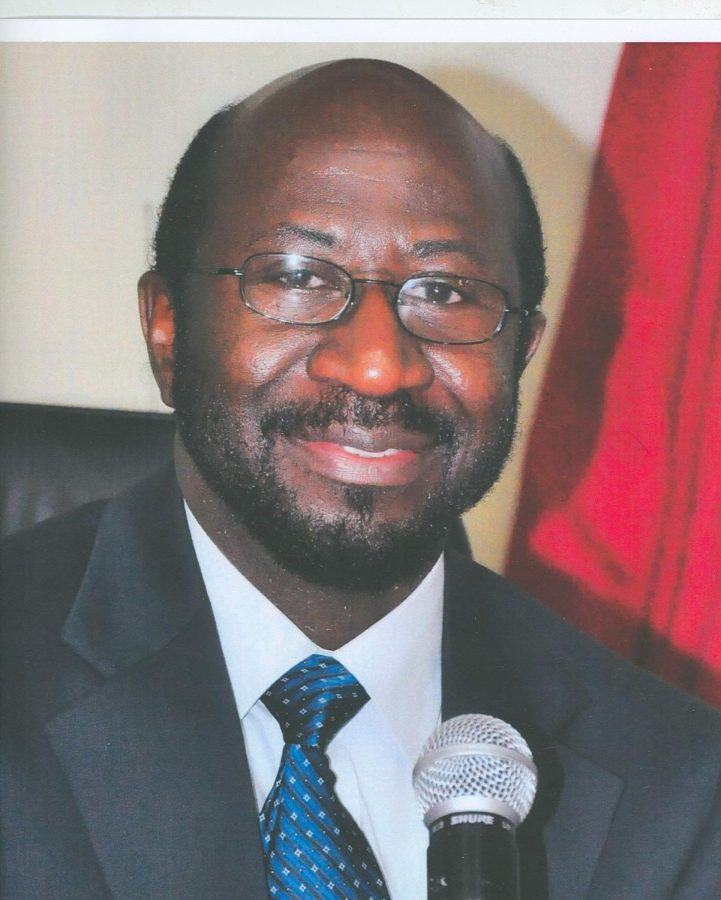Economics Professor Rexford Ahene, father of Portlock Cultural Center, to retire after 40 years at the college
In addition to his positive presence inside the classroom, Ahene led change around campus, starting the Africana Studies Program and working with the Association of Black Collegians. (Photo courtesy of Lafayette College)
January 28, 2022
After four decades of teaching and research at Lafayette College, Economics professor Rexford Ahene is retiring after the spring semester.
Ahene was monumental in making Lafayette College into a more diverse campus. He cited how in 1982, he was the only Black professor on campus, and he served as the primary advisor to all minority students on campus from then until 1997.
“There weren’t any other faculty of color at all, which meant I had to take on the burden of being the primary advisor to all students of color and advocate for their rights and ensure that this environment is welcoming enough for them to succeed as students,” he said.
Ahene worked diligently to recruit a cohort of faculty of color to make the campus as accommodating as possible for non-white students. He opposed replacing the initial refuge for African-American students on campus known colloquially as “the Black house” with a single office space in the new Farinon Center for the Association of Black Collegians (ABC) because of what he felt was “the need of a home away from home” for students of color. That plan ultimately became the Portlock Cultural Center, which Ahene said he was proud to have fought for with the help of the ABC leadership as a dedicated space for black students on campus.
While at Lafayette, Ahene established the Africana Studies program to allow students to study the diasporic contributions of Africa and African Americans to global civilizations, history and cultures. In particular, he was proud of his study abroad class, “Modern Sub-Saharan Africa,” which he introduced to the curriculum and then taught from 1989 to 2017. This course allowed students to visit and learn about Africa firsthand with a focus on sustainable land resource management policies that also addressed chronic poverty and economic development aspirations. He was also instrumental–along with a coalition of faculty of color–in encouraging the college to establish the Office for Intercultural Affairs.
Ahene was born in Ghana in 1950 and earned his Bachelor of Science degree in Land Economics and Real Estate in 1975 at the University of Science and Technology at Kumasi, Ghana, before earning his M.A. and Ph.D. at the University of Wisconsin. He proceeded to teach for a year at Wisconsin before joining Lafayette’s Economics Department in August of 1982.
He has also worked for the World Bank and the United Nations as a leading specialist in land policy and has traveled to parts of Africa such as Tanzania, Malawi and Uganda, where he helped to redefine property rights for the nation’s citizens, even becoming the target of an assassination attempt. He discussed how important the issue of land was in Africa, stating that “in Africa, land is everything” due to the primacy of small-scale agriculture to the economy of many nations; protecting the land rights of millions of marginalized people is critical to livelihoods.
Economics Professor Rose Marie Bukics who has been in the department throughout Ahene’s entire tenure commented not only on Ahene’s achievements at the college but also on his character. She described that Ahene was “always a force on campus” who participated wherever he was asked and added many great courses to the Economics Department. Bukics also described how Ahene, a family friend of hers, was the first one to comfort her when her husband passed away and how Ahene’s children played with hers.
As for his plans after his retirement from teaching, Ahene stated that he wished to travel around the world rather than just sit around on a beach.
“I’ve got too much energy, and I have too much experience in policy reforms and economic empowerment that I need to share as an advocate for change wherever I can,” Ahene said.























































































































